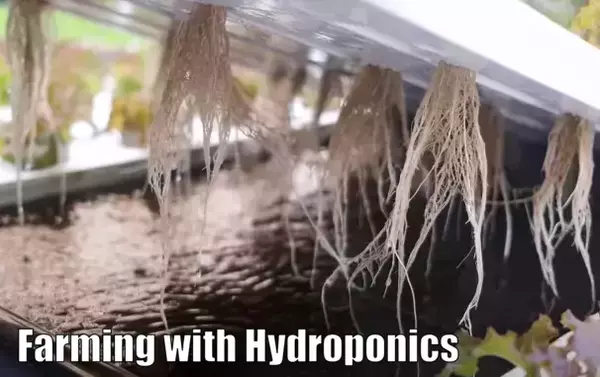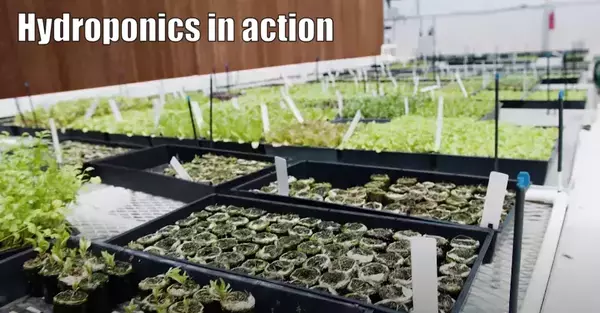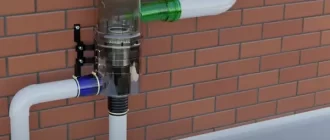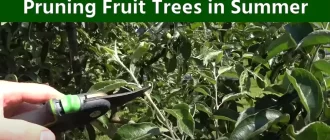Plants may be grown hydroponically without using soil. Instead, plants are grown in a water and mineral solution that is rich in nutrients. Although this style of gardening has been used for generations, it has recently gained popularity owing to its many advantages.
Advantages of Hydroponics
Compared to conventional, soil-based farming, hydroponics has several benefits.
Advantage 1: Faster Growth
Plants may grow more quickly in hydroponic systems than on soil, which is one of its main benefits. This is because the roots can more quickly reach the nutrients they require because the nutrition solution is easier for them to absorb. As a result, plants might mature more swiftly, enabling you to harvest more quickly.
Advantage 2: Easier to Control
Controlling the environment in which the plants are grown is also made simpler using hydroponics. You can cultivate the ideal atmosphere for your plants to flourish by regulating the temperature, light, and nutrition levels. This makes ensuring that your plants are receiving the nutrients they require and thriving in the ideal circumstances easy.
Advantage 3: Less Maintenance
Compared to soil-based systems, hydroponic systems require less upkeep. This is because there is no need to water the plants as frequently because the nutritional solution is continually being circulated. The soil doesn’t need to be tilled or weeded because no plants are growing there.
Advantage 4: More Space
Additionally, hydroponic systems require less room than soil-based ones. Rather than taking up space on the ground, the plants are hung in the air. This enables you to maximize your garden space by allowing you to grow more plants in a smaller space.
Compared to conventional, soil-based farming, hydroponics has several benefits. Faster plant growth, simpler environmental management, less upkeep, and less space requirements are all benefits. Hydroponics could be the ideal answer if you’re searching for a strategy to make the most of your garden area and your plants.
See also: Best Plants for a Small Garden
How does hydroponics work?
Plants may be grown hydroponically without using soil. The plants are cultivated in a water solution that is rich in nutrients rather than dirt. Water and a blend of vital nutrients and minerals make up this solution. The nutritional solution is poured into a container containing the plants, and the roots are suspended in the solution. After that, the plants are exposed to light—either sunlight or artificial illumination.
The plants receive the essential nutrients and minerals from the nutrition solution as it is continuously pumped within the container. It is possible to cultivate plants with this strategy in a number of settings, including inside, and it is quite effective. Because the nutrient solution may be recycled several times, hydroponics is a fantastic method to preserve water.
Where hydroponics is used frequently
When growing plants hydroponically, mineral fertilizer solutions in water are used instead of soil. This type of gardening has gained acceptance over the past few years and is currently practiced in many nations.
Many nations, including the United States, Canada, Australia, New Zealand, the United Kingdom, and numerous others in Europe and Asia, have adopted hydroponics. Hydroponics is employed in many different contexts in the United States, including home gardens and commercial greenhouses.
A variety of plants, including fruits, vegetables, herbs, and flowers, are grown using hydroponics. Tomatoes, peppers, lettuce, cucumbers, and strawberries are a few of the most often produced plants in hydroponic systems. Ornamental plants like orchids and bonsai trees may also be grown hydroponically.
For gardeners: The Best Shade-Loving Flowers and Plants
Conclusion
A fantastic method for growing plants without soil is hydroponics. In comparison to conventional soil-based gardening, it has various benefits, such as lower area needs, greater efficiency, and fewer pests and illnesses. Hydroponic systems are also simple to set up and maintain, making them perfect for both seasoned and inexperienced gardeners. Hydroponics may be an excellent technique to grow strong, robust plants with the appropriate equipment.









